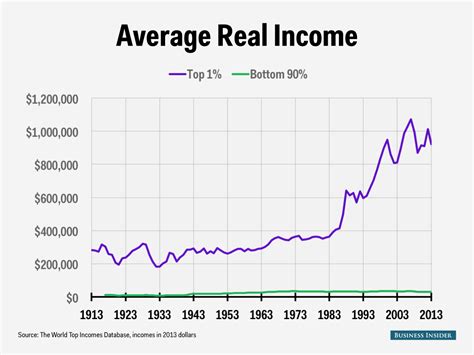
China’s regulatory freeze of a $35 billion acquisition of Toshiba’s memory chip unit, now Kioxia, by Western Digital is sending ripples of concern through the international investment community, highlighting the increasing geopolitical risks associated with deals involving China and prompting a reassessment of investment strategies.
The delayed approval, initially expected to be a formality, has now stretched beyond a year, casting uncertainty over the transaction and underscoring the potential for political considerations to outweigh commercial logic in China’s regulatory processes. The deal, structured as a purchase of Kioxia shares by Western Digital using funds from its balance sheet, was seen as a strategic move to bolster Western Digital’s position in the competitive memory chip market. However, the prolonged review by China’s State Administration for Market Regulation (SAMR) is raising questions about the future of cross-border mergers and acquisitions involving Chinese interests.
“This situation serves as a wake-up call for investors,” stated an analyst from a leading investment bank, who preferred to remain anonymous due to the sensitivity of the matter. “It highlights the unpredictable nature of regulatory approvals in China and the increasing influence of geopolitical factors on investment decisions. Companies need to factor in these risks when evaluating potential deals.”
The backdrop to this regulatory impasse is the escalating trade and technology tensions between the United States and China. The US government has imposed restrictions on the export of advanced technology to China, citing national security concerns. These measures have been met with retaliatory actions from China, including increased scrutiny of foreign investments and mergers.
The Kioxia deal is not the only transaction to have been affected by China’s regulatory hurdles. Several other high-profile mergers and acquisitions have faced delays or have been blocked altogether, fueling concerns about a broader trend of protectionism and politicization of regulatory approvals. This environment is prompting companies to explore alternative strategies, such as restructuring deals to minimize Chinese regulatory oversight or seeking approvals from other jurisdictions first.
For Western Digital, the delay in the Kioxia deal is particularly significant. The company has been facing increasing competition from rivals such as Samsung and SK Hynix, and the acquisition of Kioxia was seen as a way to strengthen its market position and gain access to advanced memory chip technology. The uncertainty surrounding the deal is weighing on Western Digital’s stock price and is forcing the company to consider alternative options for growth.
The situation is also raising broader questions about the role of China in the global economy. As China’s economic influence continues to grow, its regulatory policies are having a greater impact on international businesses. The Kioxia deal serves as a reminder that companies need to navigate the complex and evolving regulatory landscape in China carefully and be prepared for potential delays or setbacks.
The implications extend beyond just the immediate parties involved. The stalled deal could impact the broader semiconductor industry, potentially affecting supply chains and pricing dynamics. Investors are closely monitoring the situation for signals about the future direction of China’s regulatory policies and the implications for global trade and investment. The lack of transparency and the perceived politicization of the review process are eroding investor confidence and raising concerns about the rule of law in China.
The case underscores the need for businesses to conduct thorough due diligence and risk assessments before embarking on cross-border transactions involving China. This includes not only evaluating the commercial merits of the deal but also understanding the political and regulatory landscape and anticipating potential obstacles. Companies may also need to engage with government officials and regulatory agencies to address concerns and build support for their transactions.
Ultimately, the resolution of the Kioxia deal will have significant implications for the future of cross-border investment in China. A positive outcome could help to restore investor confidence and signal a more open and predictable regulatory environment. However, a continued delay or an outright rejection of the deal could further erode trust and prompt companies to reconsider their investment strategies in China. The situation serves as a crucial reminder of the complexities and uncertainties involved in navigating the Chinese regulatory landscape and the importance of factoring in geopolitical risks when making investment decisions. The saga continues to unfold, with the global business community watching closely for any signs of a resolution.
Expanding on Key Aspects:
The Toshiba/Kioxia Legacy and Western Digital’s Ambitions:
The history of Kioxia is deeply intertwined with Toshiba, a Japanese conglomerate that once held a dominant position in the global memory chip market. Toshiba Memory was spun off as a separate entity in 2017 to address financial difficulties within the parent company. Subsequently, it was rebranded as Kioxia in 2019. The company is a major player in NAND flash memory, a critical component used in smartphones, solid-state drives, and other electronic devices.
Western Digital, a leading data storage company based in the United States, has long sought to expand its presence in the memory chip market. The acquisition of Kioxia would have provided Western Digital with access to advanced NAND flash technology, increased production capacity, and a broader customer base. The deal was seen as a strategic imperative for Western Digital to compete more effectively with industry giants like Samsung and SK Hynix. Moreover, it was anticipated to bring synergistic benefits by combining Western Digital’s expertise in hard disk drives and solid-state drives with Kioxia’s NAND flash memory technology.
The original agreement involved Western Digital using existing cash reserves to finance the acquisition. This structure was intended to streamline the regulatory approval process and avoid potential complications associated with debt financing or equity offerings. However, the extended delay by Chinese regulators has thrown the entire deal into jeopardy, forcing Western Digital to re-evaluate its strategic options.
China’s Regulatory Landscape: SAMR and its Role:
The State Administration for Market Regulation (SAMR) is the primary regulatory body in China responsible for overseeing mergers and acquisitions, antitrust enforcement, and consumer protection. SAMR has broad powers to review and approve or reject transactions that could potentially harm competition in the Chinese market. The agency’s decisions are often influenced by a complex interplay of economic, political, and strategic considerations.
In recent years, SAMR has taken a more assertive stance in reviewing cross-border mergers and acquisitions, particularly those involving companies in strategic industries such as semiconductors, telecommunications, and artificial intelligence. This increased scrutiny reflects China’s broader efforts to promote domestic innovation, reduce reliance on foreign technology, and assert its economic sovereignty.
The review process conducted by SAMR typically involves a detailed assessment of the potential impact of the transaction on competition, market share, and consumer welfare. The agency may also consider factors such as national security, industrial policy, and the overall strategic interests of China. SAMR has the authority to impose conditions on mergers and acquisitions, such as requiring companies to divest assets, license technology, or make commitments to maintain competition. In some cases, SAMR may block a transaction altogether if it determines that it would have a significant adverse impact on the Chinese market.
The lack of transparency and predictability in SAMR’s review process has been a source of frustration for many foreign companies. The agency’s decisions are often based on opaque criteria and are subject to political influence. This makes it difficult for companies to assess the likelihood of approval and plan their transactions accordingly.
Geopolitical Tensions and Their Impact:
The escalating trade and technology tensions between the United States and China have significantly complicated the regulatory landscape for cross-border mergers and acquisitions. The US government has imposed a series of export controls and sanctions on Chinese companies, citing concerns about national security and intellectual property theft. These measures have been met with retaliatory actions from China, including increased scrutiny of foreign investments and mergers.
The Kioxia deal has become a casualty of these geopolitical tensions. The Chinese government is wary of allowing a US company to acquire a controlling stake in a strategic asset such as Kioxia, particularly at a time when the US is seeking to restrict China’s access to advanced technology. The delay in approving the deal is seen by some as a form of retaliation against the US for its trade and technology policies.
The geopolitical tensions are also affecting other areas of the global economy. Companies are increasingly facing pressure to choose sides in the US-China rivalry, and many are reassessing their supply chains and investment strategies to mitigate the risks associated with geopolitical uncertainty. The Kioxia deal serves as a stark reminder of the challenges that companies face in navigating the complex and evolving geopolitical landscape.
Alternative Strategies for Western Digital:
Given the uncertainty surrounding the Kioxia deal, Western Digital is exploring alternative strategies to strengthen its position in the memory chip market. One option is to pursue organic growth by investing in research and development and expanding its existing production capacity. Western Digital has been investing heavily in the development of new NAND flash memory technologies, and it may seek to accelerate these efforts to gain a competitive edge.
Another option is to pursue other acquisitions or partnerships. There are several other companies in the memory chip market that could be potential targets for Western Digital. Alternatively, Western Digital could seek to form strategic alliances with other companies to share technology, reduce costs, or gain access to new markets.
Western Digital could also consider restructuring its existing operations to improve efficiency and profitability. The company has been implementing cost-cutting measures in recent years, and it may seek to accelerate these efforts to improve its financial performance.
Ultimately, the best strategy for Western Digital will depend on a variety of factors, including the outcome of the Kioxia deal, the competitive landscape in the memory chip market, and the overall macroeconomic environment. The company will need to carefully evaluate its options and make strategic decisions that will position it for long-term success.
Impact on the Semiconductor Industry:
The stalled Kioxia deal is having a ripple effect on the broader semiconductor industry. The uncertainty surrounding the deal is creating volatility in the market and is making it difficult for companies to plan their investments. The deal could also impact supply chains and pricing dynamics. If the deal is ultimately blocked, it could lead to increased competition in the memory chip market, which could put downward pressure on prices.
The semiconductor industry is already facing a number of challenges, including a global chip shortage, rising raw material costs, and geopolitical tensions. The Kioxia deal adds another layer of uncertainty to the mix. Companies in the semiconductor industry are closely monitoring the situation for signals about the future direction of China’s regulatory policies and the implications for global trade and investment.
The situation also highlights the increasing importance of government support for the semiconductor industry. Governments around the world are investing heavily in the development of domestic semiconductor manufacturing capabilities to reduce reliance on foreign suppliers and ensure national security. The Kioxia deal underscores the strategic importance of the semiconductor industry and the need for governments to play a proactive role in supporting its growth.
Investor Confidence and the Rule of Law in China:
The lack of transparency and the perceived politicization of the Kioxia deal are eroding investor confidence in China. The deal serves as a reminder that companies need to navigate the complex and evolving regulatory landscape in China carefully and be prepared for potential delays or setbacks. The situation is raising concerns about the rule of law in China and the extent to which foreign companies can rely on the Chinese government to uphold its commitments.
The Chinese government has been trying to reassure foreign investors that it is committed to creating a level playing field for all companies. However, the Kioxia deal is undermining these efforts. The government needs to take concrete steps to improve transparency, predictability, and the rule of law to restore investor confidence.
The future of cross-border investment in China depends on the government’s ability to create a stable and predictable regulatory environment. If the government fails to do so, foreign companies may reconsider their investment strategies in China, which could have a negative impact on the Chinese economy.
Frequently Asked Questions (FAQ):
Q1: What is the main reason for China blocking the Western Digital-Kioxia deal?
A: While the official reason remains opaque and is based on regulatory review by SAMR, the delay is widely believed to be influenced by geopolitical tensions between the US and China. The US has imposed technology export restrictions on China, and this deal, involving a US company acquiring a significant memory chip asset, is potentially viewed as counter to China’s strategic interests and efforts to bolster its domestic semiconductor industry. The lack of transparency makes it difficult to ascertain the exact reasons, but political considerations appear to play a significant role.
Q2: How much is the Western Digital-Kioxia deal worth?
A: The deal is valued at approximately $35 billion. This figure represents the proposed acquisition of Kioxia shares by Western Digital, using funds from its existing balance sheet. The size of the deal underscores its strategic importance to Western Digital’s ambitions in the memory chip market.
Q3: What is SAMR, and what is its role in this deal?
A: SAMR stands for the State Administration for Market Regulation. It is the primary regulatory body in China responsible for overseeing mergers and acquisitions, antitrust enforcement, and consumer protection. SAMR’s role in the Western Digital-Kioxia deal is to review the transaction for potential anti-competitive effects and to ensure that it complies with Chinese regulations. The prolonged delay in SAMR’s approval process is what has triggered the concerns and uncertainty surrounding the deal.
Q4: What are the potential consequences of this blocked deal for Western Digital?
A: The potential consequences for Western Digital are significant. The blocked deal could hinder Western Digital’s efforts to expand its presence in the memory chip market and compete with rivals like Samsung and SK Hynix. It may also force Western Digital to pursue alternative, potentially less attractive, strategies for growth. Additionally, the uncertainty surrounding the deal could negatively impact Western Digital’s stock price and investor confidence.
Q5: How does this situation affect other companies considering investments in China?
A: This situation serves as a cautionary tale for other companies considering investments in China. It highlights the unpredictable nature of regulatory approvals and the increasing influence of geopolitical factors on investment decisions. Companies need to conduct thorough due diligence, assess political risks, and be prepared for potential delays or setbacks when navigating the Chinese regulatory landscape. The case underscores the need for a nuanced and strategic approach to investments involving China.
Further Elaboration and Detailed Analysis:
The complexities surrounding the Western Digital-Kioxia deal extend far beyond mere regulatory hurdles. The situation highlights a confluence of factors that are reshaping the global investment landscape and forcing companies to re-evaluate their strategies for engaging with China.
The Evolving Nature of Regulatory Risk:
Traditionally, regulatory risk in mergers and acquisitions has primarily focused on antitrust concerns and the potential for transactions to create monopolies or reduce competition. However, the Kioxia deal underscores a shift towards a broader definition of regulatory risk that encompasses geopolitical considerations, national security concerns, and industrial policy objectives.
In this new environment, companies need to assess not only the commercial merits of a deal but also its potential impact on the strategic interests of the countries involved. This requires a deeper understanding of the political landscape, the regulatory priorities of government agencies, and the potential for geopolitical tensions to influence regulatory decisions.
The Kioxia deal is a prime example of how geopolitical factors can trump commercial logic. Even if the deal were to have no adverse impact on competition in the Chinese market, it could still be blocked if it is perceived as undermining China’s efforts to develop its domestic semiconductor industry or as benefiting a US company at the expense of Chinese interests.
The Impact on Supply Chains:
The semiconductor industry is characterized by highly complex and interconnected supply chains that span multiple countries. The Kioxia deal highlights the vulnerability of these supply chains to geopolitical disruptions. If the deal is blocked, it could lead to a fragmentation of the global semiconductor industry, with companies seeking to diversify their supply chains and reduce their reliance on any single country.
This trend could have significant implications for the cost and availability of semiconductors. Increased fragmentation could lead to higher production costs, longer lead times, and reduced economies of scale. It could also exacerbate the global chip shortage that has been plaguing the industry in recent years.
The Kioxia deal serves as a reminder that companies need to take a holistic view of their supply chains and assess the potential risks associated with geopolitical instability. This includes diversifying their suppliers, investing in alternative manufacturing locations, and developing contingency plans to mitigate the impact of potential disruptions.
The Role of Government Intervention:
The Kioxia deal underscores the increasing role of government intervention in the semiconductor industry. Governments around the world are investing heavily in the development of domestic semiconductor manufacturing capabilities to reduce reliance on foreign suppliers and ensure national security.
The US government has enacted legislation, such as the CHIPS Act, to provide subsidies and tax credits to companies that invest in semiconductor manufacturing in the United States. The European Union is also pursuing a similar strategy, with plans to invest billions of euros in the development of a European semiconductor ecosystem.
These government initiatives are aimed at reducing reliance on foreign suppliers, particularly those located in China, and ensuring that domestic companies have access to the advanced semiconductors they need to compete in the global economy. The Kioxia deal is a reflection of this broader trend, with the Chinese government potentially seeking to protect its domestic semiconductor industry from foreign competition.
The Need for Enhanced Due Diligence:
The Kioxia deal highlights the need for companies to conduct enhanced due diligence when considering cross-border mergers and acquisitions, particularly those involving companies in strategic industries such as semiconductors. This due diligence should go beyond traditional financial and legal assessments and include a thorough evaluation of the political and regulatory landscape.
Companies need to assess the potential risks associated with geopolitical tensions, regulatory scrutiny, and government intervention. They should also engage with government officials and regulatory agencies to understand their concerns and build support for their transactions.
The Kioxia deal serves as a reminder that thorough due diligence is essential for mitigating the risks associated with cross-border mergers and acquisitions and ensuring that transactions are structured in a way that maximizes the likelihood of success.
The Long-Term Implications for Foreign Investment in China:
The Kioxia deal has raised concerns about the long-term implications for foreign investment in China. The perceived politicization of the regulatory approval process is eroding investor confidence and raising questions about the rule of law in China.
If the Chinese government continues to block foreign investments for political reasons, it could deter other companies from investing in China and damage the country’s reputation as a reliable investment destination. This could have a negative impact on the Chinese economy, as foreign investment plays a crucial role in driving innovation, creating jobs, and promoting economic growth.
The Kioxia deal serves as a test case for China’s commitment to creating a level playing field for foreign companies. The government needs to take concrete steps to improve transparency, predictability, and the rule of law to restore investor confidence and ensure that China remains an attractive destination for foreign investment.
The Broader Context of US-China Tech Rivalry:
The Western Digital-Kioxia deal freeze is just one skirmish in a much larger battle over technological supremacy between the United States and China. The US has implemented a series of measures aimed at restricting China’s access to advanced technologies, including semiconductors, artificial intelligence, and telecommunications equipment. These measures are designed to slow down China’s technological progress and maintain the US’s competitive edge.
China has responded with its own set of policies aimed at promoting domestic innovation and reducing reliance on foreign technology. The Chinese government is investing heavily in research and development, providing subsidies to domestic companies, and implementing regulations that favor local suppliers.
The US-China tech rivalry is likely to intensify in the coming years, as both countries vie for leadership in key technologies. This rivalry will have a profound impact on the global economy, shaping trade flows, investment patterns, and the development of new technologies.
The Future of the Memory Chip Market:
The memory chip market is a highly competitive and dynamic industry, characterized by rapid technological innovation and fluctuating demand. The Kioxia deal is occurring against a backdrop of significant changes in the industry, including the rise of new technologies such as 3D NAND and the increasing importance of artificial intelligence and machine learning.
The blocked deal could have a significant impact on the competitive landscape in the memory chip market. If Western Digital is unable to acquire Kioxia, it may be forced to pursue alternative strategies to strengthen its position, such as forming partnerships with other companies or investing in internal research and development.
The future of the memory chip market will depend on a number of factors, including the pace of technological innovation, the level of demand from key industries such as smartphones and data centers, and the regulatory policies of governments around the world. The Kioxia deal is just one piece of the puzzle, but it highlights the complexities and uncertainties facing the industry.
The Need for a Strategic Approach to China:
The Western Digital-Kioxia deal underscores the need for companies to adopt a strategic approach to engaging with China. This approach should be based on a deep understanding of the Chinese market, the regulatory landscape, and the geopolitical context.
Companies need to conduct thorough due diligence, assess political risks, and develop contingency plans to mitigate the impact of potential disruptions. They should also engage with government officials and regulatory agencies to build relationships and advocate for their interests.
The Kioxia deal serves as a reminder that China is a complex and challenging market, but it also presents significant opportunities for companies that are willing to invest the time and effort to understand the nuances of the Chinese business environment. A strategic approach is essential for navigating the complexities and maximizing the potential rewards.









